HORROR IS NO PLACE FOR A LADY AT LIVERPOOL HORROR CLUB!
February was Women in Horror Month. Liverpool Horror Club celebrated by hosting a convention at Constellations called ‘Horror Is No Place For A Lady’. I had attended several LHC events in the past and was not about to miss this one. Usually their events consist of around 50 attendants haunting the function rooms of various bars around the city; watching movies, cheering, drinking and playing wacky parlour games. This time round, it was a very different beast.
There were just shy of 200 people in attendance for an evening of discussion, ‘show and tell’, browsing of various stalls and a screening of Mary Harron’s American Psycho. The theme of the night was twofold; a celebration of the genre’s rich history of inclusivity and progressiveness, and a call for an increase in equality and diversity in the film industry.
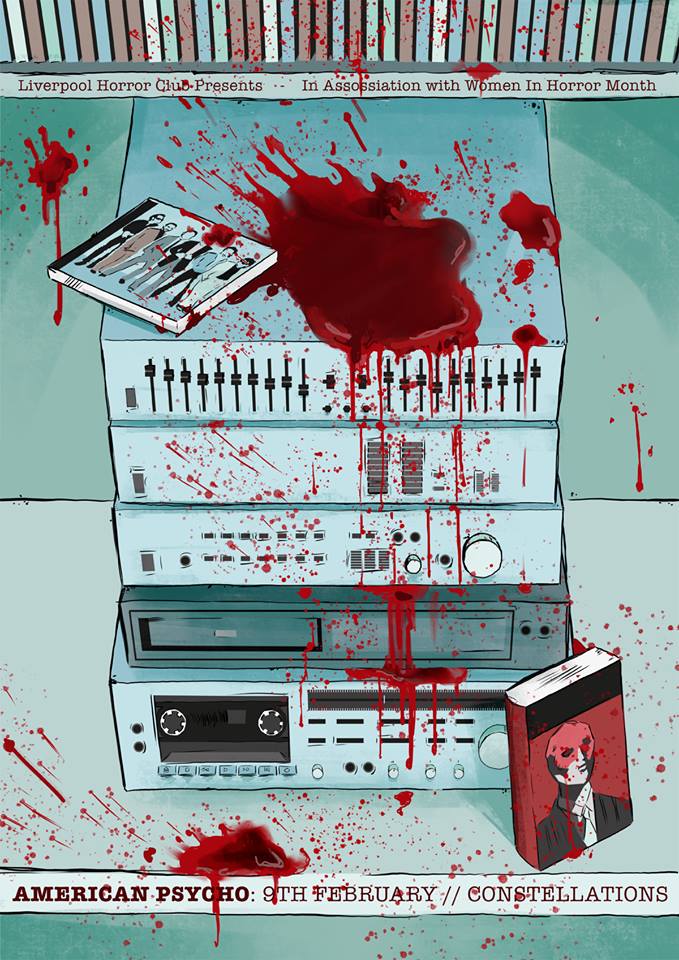
I recorded conversations between myself and several of the guests. Unfortunately, I didn’t get the opportunity to talk to two of the earlier speakers; poet Amy Roberts and animator/filmmaker Laura Spark, but you should definitely still check them out.
I sat down with the two authors; Catherine ‘Cat’ Cavendish and Priya Sharma (who both very kindly gave me an autographed copy of their latest releases). They write in the horror genre and were a fascinating addition to a line-up of, primarily, film industry experts. Cat told me how her and Priya came to be here, having both been recommended by prolific horror author and genre legend Ramsey Campbell. Cat told me “We were each invited as a facet of horror, if you like. I was representing full-length horror fiction.”
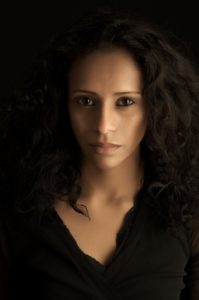
I asked each interviewee if they’ve came across any hurdles as woman in their genre or industry. “I think the horror genre is very inclusive, not only of gender but of race, age whatever! Inclusive because it’s so flexible. It’s an all-embracing genre and there are so many different strands these days. I don’t know if it’s ever been more diverse than it is now.” Cat’s latest; ‘The Haunting of Henderson Close’ (Flame Tree Press) is now widely available. Especially in Right Blend; South Road, Waterloo (Bob Stone, you owe Cat a few pints).
Priya Sharma is an author of short-fiction and a GP. She assures me that none of her stories are inspired by encounters with patients “I would be struck off by the GMC (General Medical Council) if I start divulging patient details!” We talked about horror as a literary genre “it’s been quite an exciting period in short-horror-fiction. I think people in the small press are fostering a broader range of horror work.”

On challenges as a woman in her industry, Priya said “There was a comment about mutual support [from Rebecca Howard, a panellist during the headline discussion] and how, perhaps, some women in industry are creating a glass ceiling for other women, but I’ve found it to be very mutually supportive. I’ve actually had very positive experiences in that regard.”
Priya currently has a collection of her work out ‘All The Fabulous Beasts’ (Undertow Publications) with fantastic cover art by C7 -Shiina. I found it interesting that there was such a wide variety of accounts regarding the obstacles women might face in creative industries. The two authors spoke very highly of their experiences in the publishing world. I was curious about the film and television industry. How might production prove different or even difficult?
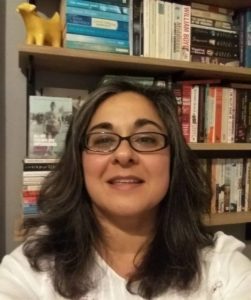
Despite Amber Shorrock’s youth, she is a veteran SFX artist and prop-maker. I wanted to see how her experiences in a traditionally male business would differ from those of Priya Sharma’s or Cat Cavendish’s. “Generally as a rule of thumb, when you rock up on set and it’s a woman who’s operating the blood rig, most people are very positive.” Amber told me. She also said it was different in the North West than in London. “None of the studios are run by women. Most of the leads that you can point to are all male SFX artists. Women are very prevalent in the community, but they are not in high level job titles.”
She was still very positive about the direction the SFX, Props and Wardrobe industry is heading. “There is a rise in levels of women coming into jobs like this, so hopefully there will be women who can break into the upper parts of the SFX industry.” No doubt a lot of Amber’s perseverance is down to a very positive attitude “I wanted to be able to show my peers that I could do everything anybody else in that studio could! Prop making should not be based on your gender but on your ability to do the job.” She showed off some of her work and it’s pretty gross… You can see examples of her rat puppets and much more at her studio; ‘The Forgotten Imp’.
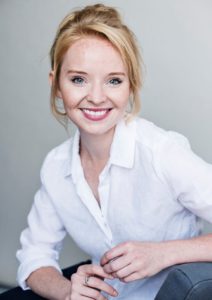
The headline event ‘Horror is no Place for a Lady’ (HINPFAL) consisted of a round table discussion hosted by Mariam Michael Draeger; “the international liaison for the Liverpool Horror Club” as she put it. Mariam was responsible for most of the evening’s content and is currently working on a documentary about women in horror. You might have heard Mariam on Front Row earlier this month discussing the reappraisal of horror as a genre.
The panel was made up of herself, writer/producer/director Simret Cheema-Innis (also known as Wickergirl), managing director of tech company TH_NX Live Amanda Follit, marketing executive at Arrow Films Rebecca Howard and actress Michaela Longden. Simret is currently crowd sourcing for her next film From Me to You, so be sure to keep your eyes peeled over the next few weeks. Check her blog for updates.
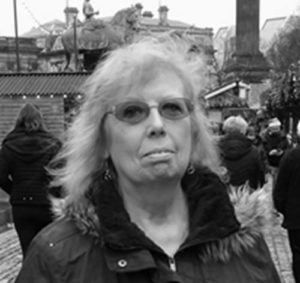
I had the opportunity to sit down with the panel before their on-stage discussion where I asked them a bit about themselves and their experiences as women in the industry. The conversation covered the lack of encouragement for young women or BAME (Black, Asian, Minority and Ethnic) all the way to the contemporary pressures and prejudices women face in these male dominated industries.

Rebecca Howard commented on the pressure young women are under to prove themselves “I do think that there’s a certain attitude to young women starting out in this industry that they won’t know or they don’t get it…” she told me “I was very concerned about it being a bit of an ‘all-boys club’.” Rebecca was positive about her experiences with Arrow Films, however “Not that my company isn’t at all inclusive, I always feel very validated in everything that I do.” Rebecca cited instances where she felt like she had to argue her worth at several festivals and Simret agreed:
“You can fall into a situation where you have to prove yourself. It’s almost like being interrogated by the fan-boy! I go to a lot of festivals and you see girls there and they know their stuff, just like the boys, but they’re in the shadow. They’re not encouraged by the people who run the festival!”
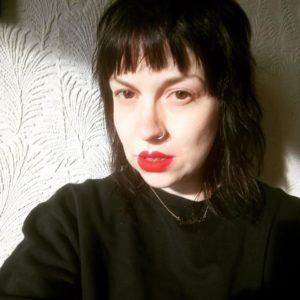
The problem however, is not restricted just gender. Simret added “I think there’s another complexity to it for me, in that I’m not a typical looking horror fan; I am a woman of colour. Unfortunately, there aren’t a lot of BAME groups working within industry full stop!”.
Amanda Follit added, “I run an event every year called Digital Day where we sometimes work with schools, taking them on a day of entrepreneurial spirit of design. What we see is that BAME students and girls tend to be the ones that are the least interested or don’t believe that this industry fits them.”
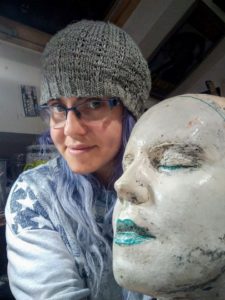
The table agreed that a lot more needs to be done to encourage individuals from an early age. Simret in particular, “You have to remember that people of colour, we do have inter-generational trauma. People of colour, they’ve seen how their parents and their grandparents and their great grandparents have struggled. Therefore, you always have that subconscious thought that you are lower than everybody else. That’s something that as a black people and families we need to work on. That comes down to leadership and saying ‘I am better than this’. But if it’s not there within your own self, or within your own community or hub, and then on top of that it’s not there within your teachers at school at an educational level, then of course you’re always going to be below!”
I spoke to Michaela Longden separately. I was very interested to hear her point of view, her being the evenings only example of a woman in front of the camera. Michaela’s own experiences have proven to be positive “I’ve not really sensed any prejudice or discrimination for me being a woman in horror at all. For example, any times I’ve had to do any partial nudity, it’s been discussed with delicacy and I’ve never been made to feel inferior due to my gender. But that’s just me, I’m fairly new into the industry and there has been a huge movement especially in the last few years, when I started doing feature films.”
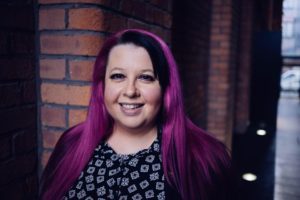
Despite having felt comfortable as an actress, Michaela was clear on the state of the industry as it is now and what needs to change, “I think we do live in a society where the white, middle-class male has been the initiator of creativity behind the lens; the director, the writer. I think for women to start a move into those areas it is going to be a challenge. People are going to need to rethink the ideologies and pre-made conceptions we’ve been following for the decades since we’ve been watching film. But I do think it’s possible, and I think it’s already started, we’ve just got to support it. I don’t think that means we have to say “oh, this film was great because the writer was a woman, the director was a woman”, I don’t believe that. I think we just need to push the women directors, writers, DOPs and let them know that they’re in a society now that will welcome them.”
Finally I spoke with HINPFAL’s main organiser, Mariam Michael Draeger. She told me a little about LHC and her role therein “the club started as something very modest and is honest as it’s from horror fans and for horror fans. We do monthly events and make them as unique and interesting as possible” “Every time we do something it’s best to get in touch with big names from the industry. My responsibility is to make sure that I bring the rest of the world to Liverpool.”
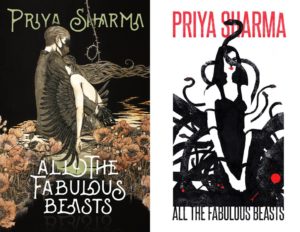
Mariam is very vocal about reassessing the way in which we see horror as a genre “There’s a huge stigma when it comes to horror films, especially when you come to women; the chick with the big boobs and long hair running away from the knife! I guess that is an aspect of it… But there’s so much more! Horror is very much about the story and the character’s journey, which means a horror film can be written really well and still work with a low budget. It’s a genre rich with independent filmmaking, if someone has a good story and they manage to raise money and call in a ton of favours and just make a film, well they can do whatever story they want, they’re not tied to the constraints that usual money makers in a big company would give them.”
We talked about Mariam’s upcoming documentary on women in horror films and how that relates to the evening’s discussion. “I started working on the concept right before the #MeToo movement and Women in Film became a thing. I had a hunch that this was something we had to talk about. Right after I started diving into the material with my team, it suddenly became a trend issue. The problem is that whenever you have a fad or trend a lot of people tend to participate in movements but it stays very superficial. With every positive effect it has, comes a negative effect. When you tell people ‘be more sensitive’, suddenly some people become uber sensitive, you know?”
“This Documentary and this event are very much about people, whether they’re into horror or not, talking to people who do work in the industry, getting a realistic and multi coloured picture of what it’s actually like, rather than buzz-words and hashtags and… That’s the whole point!”
Despite being “knee-deep in research” Mariam is still every bit the LHC Liaison. Reaching out to the public she said “Talk to us and let us know what’s going on! Tonight, it’s about women in horror, and generally it’s something we’re dealing with, but we want to be in touch with the community, we want to know what’s on people’s minds and we need to work on that! Talk to us! Come to our events!”
Check out Liverpool Horror Club on FACEBOOK
‘Horror is no Place for a Lady’ was part of Women in Horror Month and was a Liverpool Horror Club event organised by Chris ‘Zombieking’ Fairrie, Mariam Draeger, Stu Jopia and Ilan Sheady who also chaired the first half of the evening. Ilan’s company Uncle Frank Productions provided the artwork.

